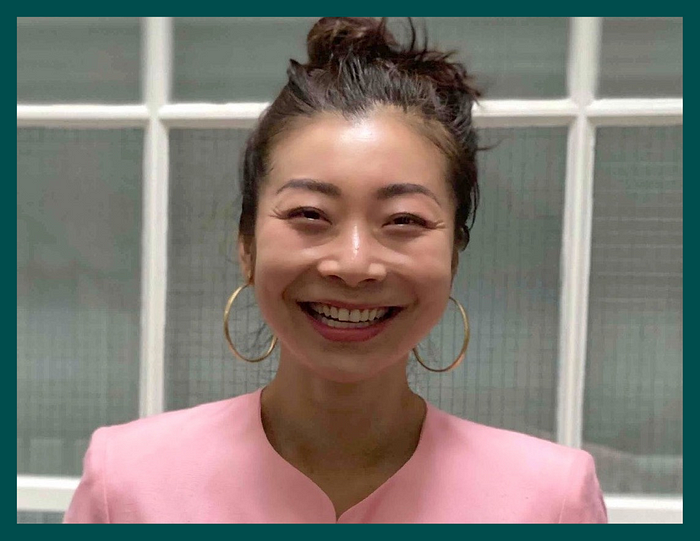Fundraising Stories: The FinTech Founder who is “changing the math” behind caregiving.

We are excited to launch our Fundraising Stories Series, starting Siran Cao from Mirza, part of Sie Ventures Cohort I.
Mirza is on a mission to “change the math” for caregiving. With Mirza’s technology, which provides employer-driven financial solutions, childcare becomes more affordable, which helps to lessen the burden of the “parenthood penalty”.
Mirza closed their pre-seed round led by a FinTech fund, raising capital from UK and US investors. Siran shares her journey on what led her to build Mirza with her Co-Founder Mel Faxon, experiences of raising both in the UK and across the pond and the valuable lessons she learned throughout her fundraising journey.
What led you to build Mirza?
Mirza is very much the culmination of experiences over my life, but it’s at the same time, coming out of the almost universal experience for women–and for more millennial men–that caregiving and career crash, and the shared realisation that “having it all” is simply a myth. Care is work historically done by women of colour, either unpaid or absurdly underpaid. Caregiving years go unrecognised for social security or pensions, which is the biggest reason women retire into poverty; our societal values and structural de-valuing of care is also what pushes men into the prototypical “breadwinning” roles that many in my generation rail against… It’s all because we don’t value care.
There are some moments in my background that encapsulate the trade-offs between caregiving and personal aspirations. Firstly, my family immigrated to America when I was eight, where my dad left my mom and me. My mom was a biochemist in China but became my primary caregiver as the family moved around for my dad’s career.
So, in the States, my mom had to entirely rebuild: work during the day, school at night, trying to make ends meet. The moment I understood those sacrifices is the moment I recognised how moms aren’t set up to succeed.
The second moment came with my own caregiving responsibilities, the reality that daughters often are caregivers for their parents. I was choosing between enrolling at University of Pittsburgh and Harvard. The former offered a scholarship that would pay me to attend, and I could live at home or visit often to check on my mom. I could provide extra money for the family. The latter offered full financial aid, but I still had costs for books, travel back and forth, and more. It may sound like a no-brainer on paper, but it wasn’t.
Did your previous job at Uber help shape any of your ideas/ did you learn any key skills which helped you when it came to setting up Mirza?
Absolutely. I built the driver support team in New York City. When I first started building and hiring, my team was predominantly Black & Brown women working an hourly, front-line job. Every single person was so driven and wanted the opportunity to grow at the company; and yet, we had limited roles for advancement, and employees with caregiving responsibilities and school schedules to accommodate had a harder hill to climb. School schedules and childcare hours played a role in our operations as well. I had the luxury as the builder to be creative on shifts, so we could have both the staff needed at peak times and provide schedules that worked for my team. So, my experience at Uber was not just how to operate with rigor and metrics, but also where that simply should take a backseat in order to support our people. But it’s also bigger than that; it’s learning how workplaces and schools haven’t adapted to the realities that most caregivers need to work.
When/Where did you decide that you were going to leave your job and start Mirza?
If you had asked me two and a half years ago whether I’d be a founder, I would have said no! I had met Mel, my cofounder, during our Master’s, and Mirza came to us one day over coffee. We were ranting about the gender wage gap, as one does, and how our caregiving and career lives crash when we start families. That was the “aha!” moment: recognising that the untenable financial burden of childcare, that trade-off being associated with mom, how choosing to prioritise caregiving for a period creates a permanent dent on our financial health. There was something there. It was so deeply personal, and it wasn’t so much a decision as a knowledge that “we’re doing this.”
As a fintech company, do you have any tips for delving into a male-dominated industry?
Two that might sit almost as contradictory:
- Know the jargon — I wish this weren’t necessarily the case, but there’s financial language that can help indicate you really know the industry you’re building in.
- Lean in on how you’re bringing outside knowledge to tap into a huge market. This isn’t exactly different from fundraising in general, but in fintech, large segments of the population are underserved.
That’s how you prove that not only do you bring expertise, but you’re creating something big.
How did you navigate your fundraising journey, and how did it evolve in time?
Initially, I started the raise not entirely having set out a good strategy. I had some Harvard or Uber alum friends who are founders and made some initial introductions, but that wasn’t a good mechanism to get in the number of conversations you need to have. I then took a more strategic tactic in building a list of VCs I wanted to meet and asked mutual LinkedIn connections for introductions. Sie team made some incredible introductions, too, not only the folks I was looking to speak with, but also put funds on my radar that could be a good fit.
Finally, it wasn’t until I met one of our angels and advisors from the Sie network, Claire Diaz-Ortiz, that I started to have more success raising. She had two key insights that changed it for me: First,
“How would a bro sell it?”
I talked so much about the mission, and the clear need, and had acclimated to all the questions about “how” or risks, that I addressed those head on. But in anticipating “how” questions and talking about it, I didn’t play to the VC mindset of the next moonshot and how big it gets. Starting with the fact that childcare is the future of work, as an enterprise solution, the next moonshot, that was a game changer.
The other key insight from Claire was a shift in the order of operations — getting more women angels first was a way to build some initial momentum and had the benefits of not needing to explain how painful the problem is. When I met with male VCs, some of them were telling me that childcare cost wasn’t a problem.
I truly don’t think fundraising is something that I could have navigated without all these women helping me.
Mirza launched in the UK and received mainly US investments while being based in the UK. How did you navigate this process, and what were the biggest differences when pitching to US vs UK investors?
It wasn’t fun, to be sure. I had morning calls with UK or European investors and afternoon through late evening calls for the States, so that was an added strain. Mel and I are Americans in London, and I had to explain often why we registered the company in the UK but launched in the US first — it was purely a function of where we happened to live, and not having started with a geo specific offering. That said, I had a much easier time with American funds and investors. There’s a more natural rapport, and having learned the culture already, I understood the context better overall: not just when humour is appropriate and how to set the tone or ease initial awkwardness, but also the cultural attitude around making big, market changing bets.
It’s common knowledge now that valuations and expectations of traction or progress are very different, and I certainly saw that: US has larger valuations, and I’d say a Pre-seed in the States is a Seed in the UK. That aside, I found
US based investors much more game to explore “how big it gets,” and talk about how we can move into different financial products, play in the supply space, and overall, illustrate a vision for the future. The UK investors talked about “the how” more.
Have you learnt anything about yourself from this experience that you didn’t know before?
Apparently, I have pretty thick skin! I think everyone who goes through the fundraising process develops thick skin. You get so accustomed to the “no.” Honestly, I realised how much of a big picture, zoomed out the vision person I really am. Mel and I already operated that way, with my tendency to look at the future and Mel’s ability to break that down and get us there. But it wasn’t until Claire reminded me of pitch like a “bro” that I leaned into the strength of selling the vision and realised how enjoyable and recharging it is for me.
Do you have any advice for female founders starting their journey?
More generally, find your network of supporters early, and ask for help. We’ve gotten amazing advisors out of reaching out to the women we admire. I also have monthly catch ups with some founder friends, and we’re able to support each other with our businesses and just know we’re not alone. Otherwise, I want to index on Claire’s advice for me, because I know it’s something that’s socially and societally embedded. What not to do:
Women tend to get asked questions about risks, and if we start to build those into how we pitch, it can become self-reinforcing. And when it comes to pitching, lean into how big it gets and your huge vision for the future!
How would you describe your fundraising experience in three words?
Back-to-back. It’s true! Lots of back-to-back calls. Hint: don’t drink a lot of water on those days. But a more serious 3-word description: exhausting, exhilarating, emotional.
